Summary
Newsnight Live…analysis of the day’s political events
Queen’s Speech in detail, and FIFA
Live Reporting
Lords coronation: updatepublished at 19:57 BST 27 May 2015
A coronation in the Lords?published at 17:01
17:01James Clayton, Newsnight producer
The House of Lords has been discussed a lot in the last week. What will an umbrella of opposition peers and crossbenchers do with the government's legislative programme?
Key to that question is how the leader of the Labour Party in the Lords decides to act. The role is currently occupied by Baroness Royall, but she is stepping down. Nominations are open for candidates today and close at 6pm. I am told that so far only one candidate has put their hat into the ring. That would mean a coronation for the Labour Leader of the House of Lords - rather than an election.
Newsnight will reveal the results as soon as they come in after 6pm.
Blatter could be questionedpublished at 16:00
16:00 Laura Kuenssberg
Laura Kuenssberg
Newsnight Chief Correspondent Image source, FABRICE COFFRINI/AFP/Getty Images
Image source, FABRICE COFFRINI/AFP/Getty ImagesFifa would probably be the victor in any tournament where the game was toughing out allegations of sleaze. Fending off the FBI and the Swiss Prosecuting authorities is something else though.
They have big names in their sights after years of investigation. And although so far the boss of the tarnished organisation, Sepp Blatter, has not been caught up in the embarrassment of today's raids on offices and Swiss luxury premises, he may well not be in the clear.
The spokesman for the Office of the Swiss Attorney General, Andre Marty, has just told me: "In theory and depending on the outcome of the investigation, Sepp Blatter could be questioned in the coming weeks, and theoretically - every person involved in the allocation of the World Cups might be questioned”.
Blatter is seeking reelection to the job this Friday. His reputation may not necessarily be safe this time.
Postpublished at 15:40
15:40 Laura Kuenssberg
Laura Kuenssberg
Newsnight Chief CorrespondentThe Road to the Referendumpublished at 14:50
14:50 Mark Urban
Mark Urban
Newsnight Defence and Diplomatic Editor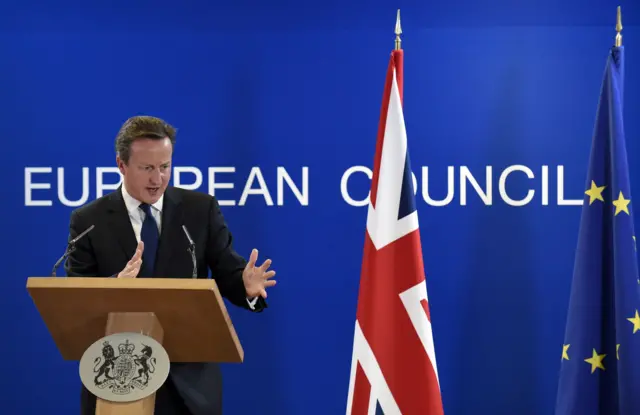 Image source, AFP
Image source, AFPMomentous politics can sometimes be dealt with by a few words in a Queen's Speech but today's phrasing on Europe showed the ambition of David Cameron's policy platform.
The operative sentences read out by the Sovereign were: "my government will renegotiate the United Kingdom's relationship with the European Union. And pursue reform of the European Union for the benefit of all member states. Along side this, early legislation will be introduced to provide for an in/out referendum on membership of the European Union before the end of 2017"
Of these provisions, the last, requiring a short act of Parliament for the Brexit vote itself, will be the easiest to deliver. It was clearly a policy central to the victorious Conservative campaign, and nobody seriously contemplates frustrating the enabling legislation.
Next up is renegotiation, a process that is already beginning with diplomatic tete a tetes, and ministers dispatched to Europe. As to how meaningful this re-think of the UK's engagement with the EU can be, that will be the subject of argument from now until the vote.
Despite the uncertainties, I will chance my arm here and say that there will be some significant changes to the kind of deal the UK gets. Key governments like Germany's are now engaging with Mr Cameron's team on a quite different basis than before last month's election.
If they are sincere about wanting to keep the UK in, and there's no doubt that many countries, particularly in northern Europe, would regard the loss of the UK as a catastrophe, then there will have to be concessions. There is also the long history of British awkwardness and opt outs - from Maastricht to Lisbon, even the bureaucrats in Brussels accept with a resigned shrug that the country has a history of driving a hard bargain.
The determination to, "pursue reform of the European Union for the benefit of all member states", may prove the hardest of today's pledges to deliver. There are some areas, such as ironing out defects in the single market, where the UK government will find support for reform.
On key certain issues of principle though, Mr Cameron's European colleagues have already signaled their refusal to countenance change. Critically for him this includes changing the Union's "fundamental freedoms" notably that of people to move in search of work. He also appears determined to modify the commitment to "ever closer union" that many European politicians regard as a basic principle for the EU that must be maintained, even if practice they are prepared to tolerate a good deal of nations doing things their own way.
Many of Mr Cameron's European colleagues appear to be calculating that if they allow the British voter to believe things have changed a little to their advantage, they can shift the public solidly behind staying int the EU, but do this without conceding much on broader issue of reform, i.e. issues that could effect people in the other 27 member states too. Those wanting the UK to leave the EU though may easily portray such tactics as evidence that this country can do little to change the wider organisation and is therefore better off out.
A PPS Problem for the Governmentpublished at 13:40
13:40By James Clayton, Political Producer
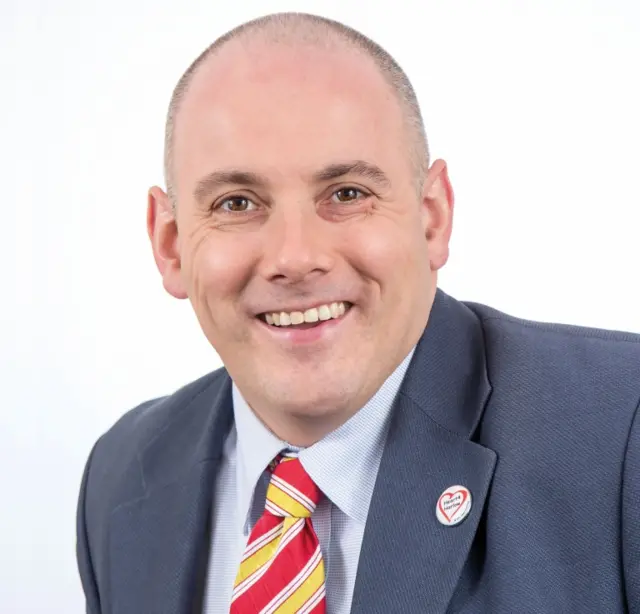 Image source, Conservative Party
Image source, Conservative PartyImage caption, Robert Halfon is one MP who prospered after becoming a Parliamentary Private Secretary
One thing you probably haven't heard much about in the news is the appointment of PPSs (Parliamentary Private Secretary). These are the most lowly positions in government: bound by the ministerial code of conduct, unpaid and reasonably uninfluential.
It does, of course, depend on whose PPS you are. Robert Halfon, for example, did very well out of being George Osborne's PPS, being appointed Minister without Portfolio in the post-election Cabinet Reshuffle.
However, one MP tells me the government is struggling to fill these posts - not because there aren't enough capable MPs but that they don't want them.
The jobs that have been particularly hard to fill are PPS jobs to Ministers of State. A PPS to someone who doesn't even attend the Cabinet?! The ignominy.
Being a PPS also stops you from speaking out about certain issues and can also preclude you from joining certain Select Committees. So why would you say yes? Well the answer to that is what happens if you say no. It's a statement to the top brass that you're not interested in doing the dirty work to get on the first rung of the ladder.
At the moment, however, the problem the government has is that too many MPs are weighing up the pros and cons and deciding it's just not worth it. In a tight parliament they could have far more influence as rebellious backbenchers.
Blue collar Queenpublished at 12:38
12:38 Allegra Stratton
Allegra Stratton
Newsnight Political Editor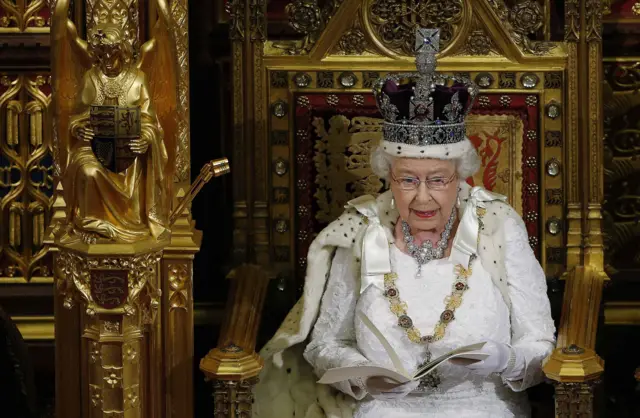 Image source, Reuters
Image source, ReutersIt is amusing to see the Queen come to parliament, and amid the dazzling gold, read out a speech designed to make the Tory party seem more ordinary.
One of the big regrets senior Conservatives have of the last parliament is that they didn't do enough, early enough, to take on the idea they were too close to the rich. That they allowed the idea to take hold that they didn't understand working people. That's why, hour one of this government's reshuffle saw them emphasise the appointments of people well, not from Eton. A minister said to me recently: "As Lynton says, you can't fatten a pig on market day and so we couldn't convincingly tackle this sense towards the end of the parliament. There was just no point. Now we are back in government, we aren't going to waste a moment".
And so into this mix comes the £12bn cuts to the welfare bill, something that many thought would be bartered away in negotiations with Lib Dems. How do you cut it, without going too heavy on in work benefits, the very group you are trying to appeal to? One senior Tory source sees the £12bn as the biggest problem for them in the next few years as they assiduously set about trying to make "blue collar Conservatism" fly. As big, in it's own way, as the delicate parliamentary arithmetic.
Now, I'm assured that the welfare secretary Iain Duncan Smith is ready to do the the £12bn... But exactly how is one of the trickiest policy problems of this government. Freezing benefits to a 1% increase over the parliament would get them a few billion. Limiting child benefit to two children would have brought in maybe as much as £4bn and would have been the preference of senior Tories, but they feel the PM ruled that out during the election campaign.
I think, on balance, it's likely that these cuts will be made, but it will be a balancing act - carefully calibrated to fit into the new narrative of "blue collar conservatism".
Matthew Thompson, Newsnight producerpublished at 12:01 BST 27 May 2015
12:01 BST 27 May 2015A new set of rebels?published at 11:35
11:35Could liberal tories be the troublemakers this Parliament
 Ed Brown
Ed Brown
Newsnight producer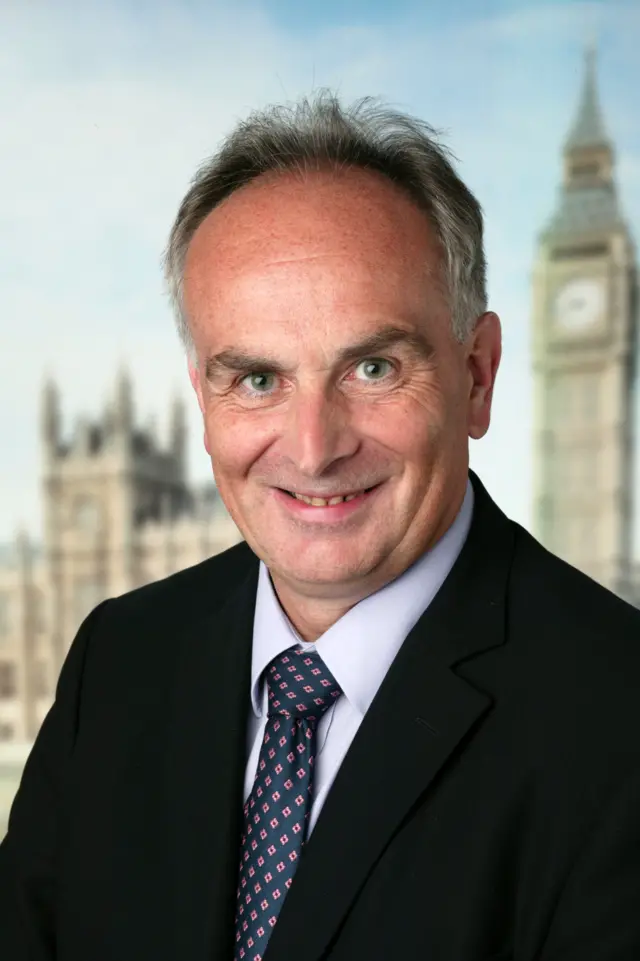
Image caption, Peter Bone - one of last Parliament's troublemakers
Perhaps the most important thing to remember about this Parliament is the Government's majority of 12. That means just six MPs have to rebel to start causing trouble for its legislative programme.
Last Parliament, the Parliamentary trouble for Cameron came from the Conservative right - rebelling on that well worn Tory itch, Europe.
This time around, there's reason to believe the Government's rebellions might come from another quarter; (small l) liberal or libertarian Conservatives.
You can see that in The Times this morning. It carries the story that today's Queen's Speech will not, as expected, announce that there will immediately be legislation to introduce a British Bill of Rights (essentially ditching the Human Rights Act).
Now this might be because the Government wants to get the legislation right and consult widely before such a dramatic change. But one wonders whether it has rather more to do with the concerns of Conservatives that take a more liberal line on these things.
David Davis is often cited as a ringleader of this group - but I, and other journalists, have spoken to others in the party who have serious about the proposal as it stands. It's not difficult to come up with a list of six who might rebel.
And there are also concerns about counter-terror measures being introduced by Theresa May. Clegg will stand up today and paint them as an attack on civil liberties - but there are also those on the Conservative benches who agree with him.
"We have to be careful about unintended consequences" one Tory backbencher told me. If the state becomes too intrusive you "drive people into the hands of Jihadis", and you risk "defeating" the "very values you are trying to defend".
Now, let's be clear - as far as I am aware, this is a relatively small group of backbenchers. But with a majority of 12, it doesn't take many to cause trouble.
This Parliament don't be surprised if the "usual suspect"rebels become not the right wingers - but the liberal Conservatives.
Phew! Or maybe notpublished at 11:30
11:30 Laura Kuenssberg
Laura Kuenssberg
Newsnight Chief Correspondent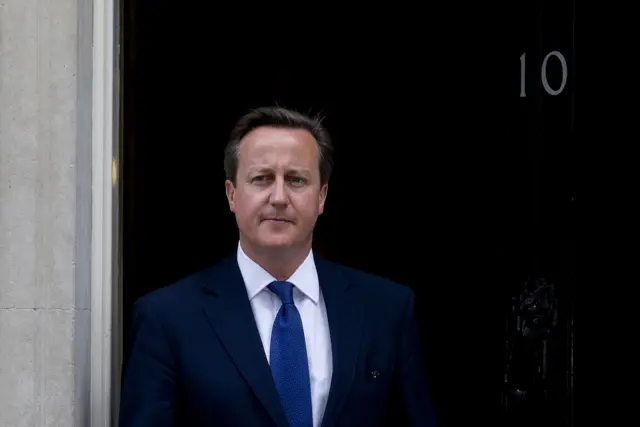 Image source, AFP/Getty Images
Image source, AFP/Getty ImagesThe idea of being able to run the country as a majority government should, in theory, have been a relief for the Conservatives. Phew! A big sigh of relief, so they can get on with the things they really want to do, unencumbered by the politics of coalition. Except, as the decision of the government to consult, rather than press ahead immediately with new laws to scrap the Human Rights Act and introduce a British Bill of Rights, shows the reality. Even though this idea has been in Conservative manifestos for years and years, the Prime Minister and his new Justice Secretary Michael Gove, can't be confident of being able to get their package for the reform without winding up significant and noisy chunks of their own side.
In fact, without being able to use the Liberal Democrats as political cover, the Conservatives are going to have to enact rather a lot of policies that they did not necessarily expect to and it might not be straightforward. On the Bill of Rights for example, they have decided not to try straight away. As the hunt for 12 billion of welfare cuts begins in earnest, there may be significant unease on the backbenches if the party leadership goes anywhere near payments like child benefit. Today you'll hear Conservative after Conservative standing up to say how marvellous it is they are able to enact their manifesto having won an overall majority. But the reality is, all political parties themselves are coalitions too.